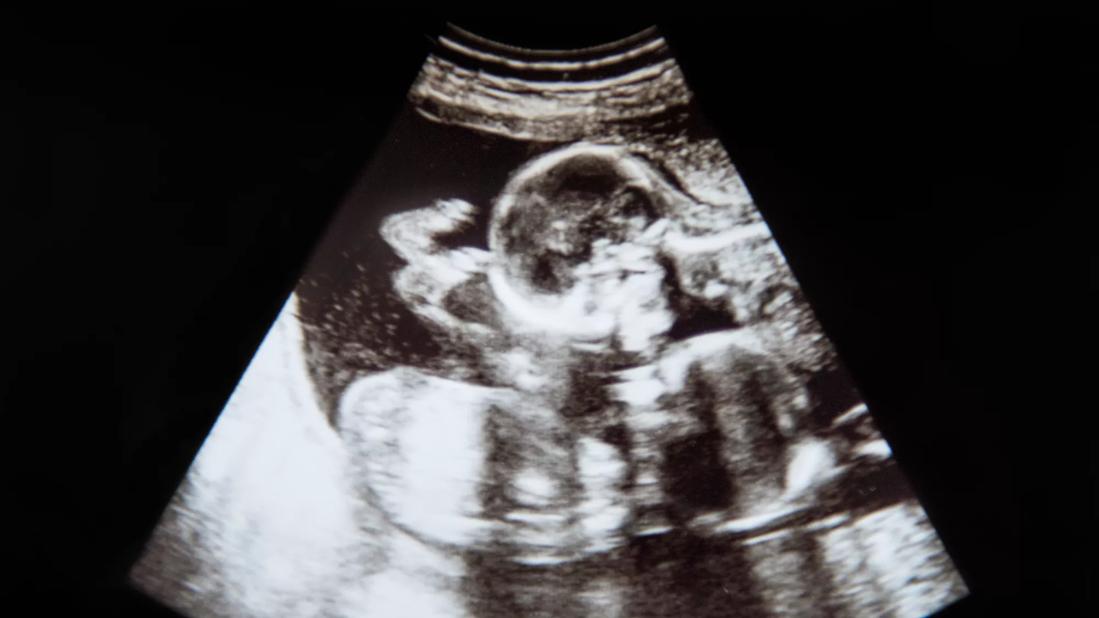Blood test along with ultrasound is beneficial for twin pregnancies

Image content: This image is available to view online.
View image online (https://assets.clevelandclinic.org/transform/e5924546-b6c7-4fd2-8ff9-9bc146ca54d7/ultrasound-twins-872632022)
ultrasound of twin pregnancy
To reveal a baby’s risk for genetic disorders, fetal DNA can be analyzed using a blood draw from the mother. In twin pregnancies, this screening has the added benefit of revealing chorionicity – whether the babies share a placenta or have their own.
Advertisement
Cleveland Clinic is a non-profit academic medical center. Advertising on our site helps support our mission. We do not endorse non-Cleveland Clinic products or services. Policy
The screening is single-nucleotide polymorphism-based (SNP-based) cell-free DNA (cfDNA), and it can provide helpful information for guiding care throughout the pregnancy.
“Twin pregnancies have a host of complications unique to them depending on the type of twins – monochorionic or dichorionic,” says Maeve Hopkins, MD, a physician in Cleveland Clinic’s Obstetrics and Gynecology Institute. “While there are other technologies to screen for aneuploidy, they don’t determine the chorionicity of the twins.”
Dr. Hopkins co-authored two posters, presented at the Society for Maternal-Fetal Medicine’s Annual Pregnancy Meeting in February 2024, related to twin pregnancies and SNP-based cfDNA screening. The first looked at chorionicity diagnoses and the second examined zygosity-based twin pregnancy outcomes.
Ultrasound has been recommended for prenatal diagnosis of chorionicity, but it has not been thoroughly validated. Dr. Hopkins and her colleagues participated in a study led by Ruben Quintero, MD, of The Fetal Institute to assess the accuracy of the diagnosis of chorionicity by ultrasound before cfDNA results are known. A total of 106 twin pregnancies (˃ 20 weeks gestation) were included in the prospective observational registry multi-institutional study.
The study concluded that ultrasound assessment of chorionicity may be inaccurate in approximately 3% of twins. A false negative monochorionic (MC) diagnosis could preclude timely management of typical MC complications, while a false positive MC diagnosis may lead to unnecessary surveillance or interventions.
Advertisement
The same group of researchers conducted a prospective study of a cohort of 123 twin pregnancies (˃ 20 weeks gestation) to evaluate pregnancy outcomes stratified by zygosity based on SNP-based cfDNA screening. They compared outcomes for monozygotic monochorionic (MZ MC) and monozygotic dichorionic (MZ DC) twins with those of dizygotic (DZ) twins.
Among the findings, MZ MC twins had the highest incidence of pregnancy complications, including preterm birth and NICU admission. The incidence of small-for-gestational age (birth weight ˂ 10th percentile) was higher in the MZ DC group compared to the DZ group.
SNP-based cfDNA screening can be a valuable tool in twin pregnancies.
“Twins who share a placenta are treated very differently than twins who each have their own placenta, so it’s helpful to get that diagnosis,” says Dr. Hopkins. “The gold standard for diagnosis is first trimester ultrasound, but SNP-based cfDNA screening can serve as an adjunct test, particularly in difficult or uncertain cases.”
Using the screening method for zygosity is also helpful.
“SNP-based aneuploidy screening can potentially stratify risks, as in the second study we found higher rates of growth abnormalities in monozygotic twins, regardless of chorionicity,” says Dr. Hopkins.
Advertisement
Advertisement
Rare pregnancy complication can lead to fetal demise
Prescribing eye drops is complicated by unknown risk of fetotoxicity and lack of clinical evidence
ACOG-informed guidance considers mothers and babies
Research may offer family-planning insights for those with the condition
Largest study examines factors affecting asthma exacerbations during and after pregnancy
Surveyed residents say they get little or no nutritional training
Comparing strategies for cesarean prophylaxis with penicillin allergy
A discussion of special care considerations before, during and after pregnancy